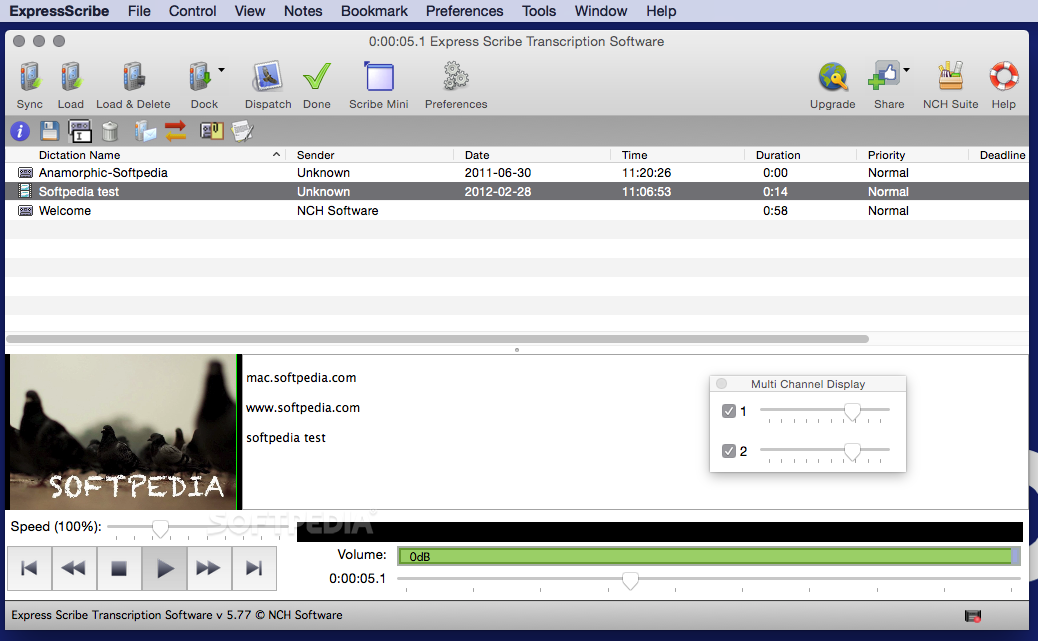
Impact investing is a hot topic in Silicon Valley and beyond. Now, with the rapid spread of the coronavirus, it has never been more important that private sector impact investing really has an impact, and not just for the lucky few.
Expanding access to medicines and health services has become the top priority, with COVID-19 spreading worldwide. It is time to support technologies that can have a significant positive impact on a large number of people.
Much of my investment activity is focused on digital healthcare companies, an area where analysts expect phenomenal growth in the coming years, and which may experience further growth due to COVID-19. Due to the pandemic, a large number of digital health companies are now able to have an impact.
My colleague Heidi Patel and I, as well as our team as a whole, have submitted over 2,500 business launches in the past few years. In the digital health field, we have developed a good idea of the types of businesses that will have a real impact, and we have been fortunate to fund and help these businesses grow.
Here are some of the metrics we use to assess the potential social impact of a business:
1. Price and affordability: Even the most innovative solutions to the many health problems in our world will mean little if they are out of reach for millions of people. If a business plans to sell directly to consumers, its product or service must be affordable. Alternatively, the product can be paid for by employers, health plans or other business-to-business entities that have end user access to the product or service.
2. Geography and accessibility: The best innovations, especially in health, are those that make a valuable product or service widely available. Geography, like price, is a factor that can limit accessibility. We are looking for new companies that are using technology to reduce the distance between people, be it a doctor and a patient in two different cities or participants in virtual clinical trials who might otherwise be excluded from these opportunities. People not only need to buy new technology, they also need to be able to use it easily.
3. Diversity: Different management teams may be better able to reach and attract different populations. More diversity is good for the world, and doing the right thing is often very helpful for the end result.
Doing good is good business
As venture capitalists, we don't finance companies just because they do something great for humanity. We also need to make sure that they evolve, thrive and deliver a strong return on investment. In other words, we must do well and do good. And we have to do both, even in times of economic uncertainty like now.
As the flow of transactions may change in the months and years to come, now is the time for venture capital firms in the digital health space to reassess their portfolios and investment strategies. .
The good news is that today we can often do well and do good without a difficult choice. Often, social impact businesses are simply better businesses.
For starters, companies that aim to help a diverse set of communities have a much larger total addressable market than companies that create technologies intended only for those with money, education, and lots of free time.
"
Generation Y and Generation Z workers want their jobs to mean something.
"
Social impact firms not only tend to have a larger potential customer base, but have also gained in stature and value due to the quality of the talent that wants to work in impact firms. Generation Y and Generation Z workers want their jobs to mean something, and they want to get involved in some of the world's biggest challenges without having to wait until retirement to make a difference.
Take, for example, the cost of drugs, a problem that affects so many Americans. This is a big challenge, which some in government have tried to tackle, but it is unlikely to have an impact on patients anytime soon, if at all. Adherence to treatment regimens for chronic health conditions is particularly important today, due to the danger of COVID-19 for people with underlying health problems.
For example, Semper Health, led by young dynamic founder Anurati Mathur, relieves the cost of medication while improving adherence to medication and, ultimately, makes people healthier. This type of deep impact business is what today's top talent finds compelling. Young professionals are often much more willing to consider a business at an earlier stage when the financial mission of this business is intrinsically aligned with a more important social imperative.
The tech industry is waging a massive war on talent, and companies with real social impact are winning this war. At the same time, innovations in software and other business technologies have lowered the barrier to launching and scaling up new businesses. Investors now have more opportunities than ever to do good and do good. It is important to keep this in mind as we strive to comply with the United Nations " sustainable development goals
Jenny Abramson is Founder and Managing Partner of the Venture Capital Company Rethinking the impact.
Lily:The doctor will see you now. But it will not be face to face since telemedicine becomes the new standard.
More: These millennials spend their forties at the service of others.

![Download ▷ StartIsBack++ FULL! 2.9.19 (Win 10), 1.7.6 (Win 8) [CRACK] Download ▷ StartIsBack++ FULL! 2.9.19 (Win 10), 1.7.6 (Win 8) [CRACK]](https://www.descarga.xyz/wp-content/uploads/2023/03/StartIsBack-Full-Descargar-Gratis-por-Mega.png)

